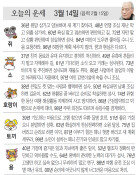Hydrogen economy, two years behind Japan
Hydrogen economy, two years behind Japan
Posted June. 12, 2019 07:43,
Updated June. 12, 2019 07:43
It has been confirmed that Japan is working to establish a “hydrogen economy alliance” with the U.S. and European Union, to the exclusion of Korea ahead of the G20 summit slated for June 28-29. There have been private consultative groups in the fields of car, energy, and IT but this is the first time that a national-level organization for hydrogen economy has been formed.
The reason why Japan, a recognized leader in hydrogen economy, is taking the initiative in forming such an alliance is to keep Korea in check and gain the upper hand in the international arena. Japan has taken interest in hydrogen energy since the Fukushima nuclear disaster in 2011 and became the first country in the world to adopt a basic hydrogen strategy in 2017. The country has been also focusing on expanding infrastructure with an aim of ushering in a hydrogen society before the 2020 Tokyo Olympics. Competition has become fiercer between Korea and Japan after Korea announced its blueprint in January to take the biggest market share in the hydrogen car and fuel cell market by 2030 through its hydrogen economy roadmap.
Korea is being recognized as having world-class technologies in hydrogen application. Hyundai Motor mass produced hydrogen vehicles for the first time in the world in 2013 and introduced a hydrogen-fueled electric car that can travel the longest distance of 609 kilometers on a single charge last year. As much as 99 percent of the key components are made in Korea. But it somewhat lost the leadership in the field due to regulations involving charging stations and subsidies. For example, Japan eased regulations to build more than 110 charging stations nationwide while Korea only has 21 charging stations as it is banned by law to build a charging station inside a city. The first commercial charging station in downtown Seoul will be completed in August inside the National Assembly as part of Korea’s “regulatory sandbox” policy.
The global hydrogen industry is estimated to be worth 2.5 trillion U.S. dollars (2,950 trillion won) by 2050. A global race has already begun to preoccupy the market. The government should drastically remove unreasonable regulations and actively support relevant players by providing subsidies and streamlining approval process so that Korea can become a genuine leader in hydrogen economy. It should also develop internationally standardized technologies by strengthening bilateral and multilateral cooperation as Japan has been working on. A bill on the development of hydrogen economy, which is pending in the South Korean National Assembly, should be passed without much delay. There is no time to waste when other countries strive to blow away the competition.
Headline News
- Opposition parties pass amendment to Commercial Act
- Impeachment motions against top officials dismissed
- IU's residence ranked as the nation's most expensive apartment
- K-medicine saves 300 lives in Mongolia through liver transplant skill transfer
- Prisoners in N. Korean camps suffer from torture at minus 30 degrees







